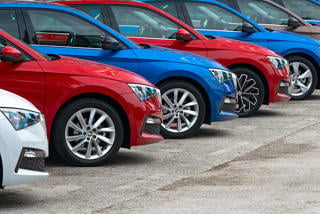Cox Automotive believes EV prices and infrastructure remain a concern for the automotive sector this year.
The company has highlighted some of the broader sector trends likely to affect the new car market in 2023 and beyond.
Philip Nothard, insight and strategy director at Cox Automotive, said: “As we edge closer to the Zero Emission Vehicle Mandate regulation, more needs to be done for EVs to truly become the dominant mode of transport. Significant investment is still needed in the charging infrastructure to support a growing EV parc. In addition, there are still barriers to entry for many people, with the cost of EVs being higher than their petrol/diesel counterparts.”
Cox Automotive believes that a lack of infrastructure to support more EV purchases, discussions surrounding the agency model and the rise of Chinese brands in the UK and Europe could all change the shape of the sector for years to come. However, when making its forecasts for the year ahead, the company has considered the positive position the new car sector currently finds itself in, having already navigated several significant headwinds.
In the most likely scenario, Cox Automotive predicts new car registrations in 2023 will total 1,711,447, which would be a 6% increase on 2022 levels, but still 26% down on pre-pandemic levels.
Nothard added: “Last year was challenging for the new car sector, yet we began 2023 with a welcome, albeit small, feeling of positivity.
There were signs in the closing months of last year that manufacturers were increasing supply levels, reducing market volatility, with added reports of tactical registration activity and increased activity in the leasing sector; we have signs of a ‘normal’ car market.”
If new vehicle production recovers more quickly than anticipated, consumer and business confidence improve and a resolution is reached in Ukraine, the sector could achieve 1,904,024 new car registrations, 18% higher than 2022, but still down 17.6% on pre-pandemic levels.
Cox Automotive’s downside scenario predicts a reduction in fortunes with worsening complications caused by the ongoing conflict in Ukraine, failed government incentives to slow inflation, and further interest rate rises to put additional pressure on consumer spending.
As a result, the company’s downside figure for the full year is 1,614,352 new car registrations, the same number recorded in 2022 but still 30.2% down compared to the nine years prior to 2020.
> Interested in comparing electric vehicle data? Check out our EV tool.
> Interested in ensuring the efficient use of EVs. Check out our dedicated editorial sections: Insight & policy | EV news | Charging & infrastructure | Costs & incentives | Benefit-in-kind | EV case studies | EV road tests























Login to comment
Comments
No comments have been made yet.